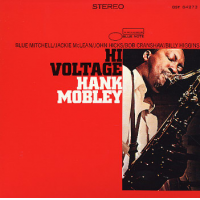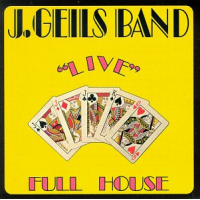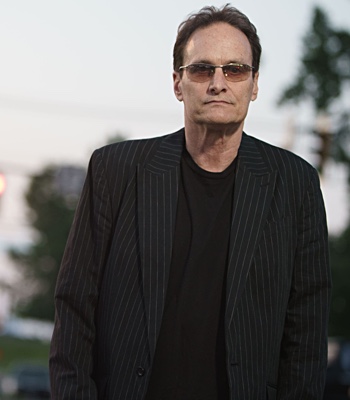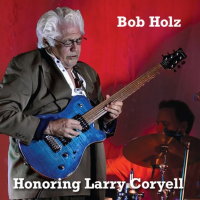Jazz Articles
Our daily articles are carefully curated by the All About Jazz staff. You can find more articles by searching our website, see what's trending on our popular articles page or read articles ahead of their published dates on our Coming Soon page. Read our daily album reviews.
Sign in to customize your My Articles page —or— Filter Article Results
Charles Mingus: Mingus At Carnegie Hall (Deluxe Edition)

by Chris May
This 2-CD set takes the 1974 album Mingus At Carnegie Hall (Atlantic) and adds seventy minutes of previously unissued material recorded at the same concert. It is as worthwhile an addition to Charles Mingus' recorded legacy as 2020's previously unissued 2-CD set Charles Mingus @ Bremen 1964 & 1975 (Sunnyside). Why it has taken so long for either set to be released is anybody's guess. But at least we have them now. Mingus led many great bands ...
Continue ReadingTogether (Maxine Sullivan Sings The Music Of Jule Styne)

by Mark Barnett
Getting Started If you're new to jazz, go to our Getting Into Jazz primer for some hints on how to listen. CD capsule What do you get if you take a 76 year old jazz singer who's seen a lot of life, surround her with a small group of premier jazz musicians and give her a bunch of vintage Jule Styne songs to sing? You get something you really ought to hear, a disc ...
Continue ReadingLed Zeppelin: Physical Graffiti (Deluxe Edition)

by John Kelman
After nearly five years that saw the group release five albums--from 1969's earth-shattering eponymous debut to 1973's less consistent Houses of the Holy (all on Atlantic Records)--and incessant touring that saw the group break numerous attendance records and reach the top of the charts worldwide, Led Zeppelin finally took a much-needed break in 1974. Still, while singer Robert Plant, guitarist Jimmy Page, bassist/keyboardist/multi-instrumentalist John Paul Jones and drummer John Bonham took some downtime to spend with family and friends, the ...
Continue ReadingKabadayas: IV

by Nenad Georgievski
IV--the exciting debut from an international quartet founded by its ferocious rhythm section of bassist Djole Maksimovski and drummer Dino Milosavljević--represents a fairly strong start. The group thrives on the cohesive whole, playing as one but in a state of continual conversation. As the name itself suggests--"kabadaya" is local Macedonian archaic jargon for swagger(s)--the musicians do show their skills on their respective instruments. Guitarist Zoran Kostadinovski and clarinetest Goran Bojčevski may not be as well-known to the general ...
Continue ReadingChick Corea, Herbie Hancock, Keith Jarrett, McCoy Tyner: Chick Corea, Herbie Hancock, Keith Jarrett, McCoy Tyner

by Lawrence Peryer
Atlantic Records issued this collection 1976, featuring two tracks each from four of the most important pianists in the post-bop era. Excepting one piece, each pianist is represented here in trio format. The Keith Jarrett and Chick Corea offerings are from their own 1966 sessions as leaders. Jarrett contributes two original compositions and is joined by drummer Paul Motian and bassist Charlie Haden in pleasurable but somewhat conservative outings. Corea brings two different lineups: ...
Continue ReadingHank Mobley: Hi Voltage

by George Harris
Poor Hank Mobley: overlooked and under appreciated in his lifetime not only as a tenor player, but also as a composer, as this '68 reissue testifies. While none of these originals have caught on through the years, Hi Voltage makes a strong case for a revisit of Mobley's songbook.
With an all-star frontline (Jackie McLean and Blue Mitchell), Mobley takes the band through a set of advanced hard bop ("Two and One"), sophisticated samba ("Bossa De Luxe"), and ...
Continue ReadingHank Mobley: Hi Voltage

by Samuel Chell
I'm one of those listeners so addicted to the blues-drenched, butterscotch-smooth sound of Hank Mobley's tenor that I can scarcely last a week without playing one of his recordings. The newly reissued Hi Voltage, unfortunately, turns out to be a negligible session by the “middleweight champion" of the tenor saxophone.
When the recording was made in the late sixties, the lyrical style associated with Mobley was falling out of favor, so he elected to try for a “harder ...
Continue ReadingJ. Geils Band: Full House

by C. Michael Bailey
Blow your face out, baby... Once, when I was teaching Chemical Quantitative Analysis to pharmacy students, one of my charges approached me before a test and asked, “Can you tell me all I need to know to pass this quant quiz?" The exam was the Wednesday before Thanksgiving and my class was wanting to get an early start on the holiday. It reminded me of me doing the same thing in school and my teacher reminding me ...
Continue ReadingKeith Jarrett: Life Between the Exit Signs

by John Kelman
Not long after recording '66's Buttercorn Lady with Art Blakey, and Dream Weaver , which signalled the beginning of his association with Charles Lloyd's hugely popular quartet, pianist Keith Jarrett was encouraged by Lloyd producer George Avakian to make his first recording as a leader. Jarrett's immediate popularity in Downbeat 's Readers poll for that year was instrumental in his being able to attain complete artistic freedom, a characteristic that has ultimately defined his entire career. Life Between the Exit ...
Continue ReadingThe Erroll Garner Trio: The Greatest Garner

by Chris M. Slawecki
Erroll Garner imperturbably played more or less the same piano style throughout his career, blending jazz and pop with a bounce and grin. When he rocks a tempo hard, as on this version of “Confessin,’” he nearly sounds the second coming of Fats Waller, completely free from the bebop influence felt by many of Garner’s piano contemporaries.
These 1949–50 sessions coincided with Garner’s engagements at such famous Harlem showplaces as the Three Deuces, the Apollo Theatre, and ...
Continue Reading

























